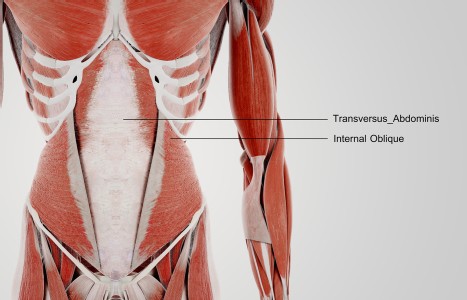TrA-2, my primary needle location, I needle 95% of the time and I think it works the best. You’ll know you have the right point location when you discover the muscle twitching when applying electric stimulation.
The Physiology of Anger
Most of us recognize and have felt anger at some point in our lives. Anger can be seen as a natural response to some kind of pain, whether emotional or physical. Our reaction to the pain is the spark that lights the fire of anger: we evaluate the cause and determine that someone or something is unjustly attempting to harm us. Alongside the emotion of anger is a dimension of action: hostility or aggression. This can manifest mildly as irritation, or at the other extreme, violent rage. When habitual, it can solidify into an enduring personality trait. Anger does serve a function, but in excess it easily causes more problems than it solves.
Chinese medicine readily presents anger as a destructive emotion that can impact many organs and systems in the body. Patients, particularly those who have suffered serious medical emergencies, may have trouble reconciling the mind-body approach of Chinese medicine with the hard science of Western medicine. The two systems do agree, though, that anger can have a profound impact on the physical body. The task of educating patients may be aided by an awareness of scientific studies on anger. Most notably, anger has been shown to impact the functioning of the heart.
Anger and the Heart
Anger stimulates more sympathetic nervous system activity than other emotions. The body engages a defense response, marked by high levels of the catecholamines (epinephrine and norepinephrine). Heart rate and temperature increase, as does blood pressure. Other bodily sensations include nausea, clenched fists, muscle tension, and sweating.
Of particular interest are the effects of anger on the cardiovascular system. Study after study demonstrates that anger dramatically increases the incidence of coronary heart disease (CHD). In "Hostility, Anger, Aggressiveness and Coronary Heart Disease: An Interpersonal Perspective on Personality, Emotion, and Health,"9 the authors explicitly state the connection:
"Presently, anger, hostility, and aggressiveness collectively represent one of the most widely studied psychosocial risk factors for CHD and premature mortality, and most—but certainly not all—of the available studies support this association."
The heart pumps blood less efficiently during angry situations, in comparison to other heightened states such as exercise or generic stress. One effect is an increased incidence of myocardial ischemia, an oxygen deficit in the cardiac muscles that pump the heart. Myocardial ischemia can lead to angina pectoris, acute coronary syndrome and myocardial infarction (a heart attack).
In various studies, large samples of men reporting high levels of anger were three times as likely to die from CHD or suffer nonfatal myocardial infarction. Other similar studies found up to a six-fold increase in cardiovascular disease, CHD and myocardial infarction when anger traits were present. Further, anger has been linked to ventricular arrhythmias, increased arterial pressure, the aggregation of platelets, and inflammation produced by an overactive immune system that causes clogged arteries. Thus the widespread and common belief that anger lives in the body is fully supported by scientific evidence.
Supporting Treatment of Anger with Lifestyle Changes
To achieve more lasting health shifts, practitioners of any type of medicine can support treatments by offering tools for coping with anger triggers. Here, too, Western science may offer patients some encouragement.
A common psychological theory of healing anger, catharsis, predicts that we can purge traumatic experiences by immersing ourselves in them and re-experiencing them in full. Yet in "Does Venting Anger Feed or Fan the Flame?"2 there is evidence that catharsis increases rather than decreases the physiological markers of anger. The author concludes that "venting to reduce anger is like using gasoline to put out a fire — it only feeds the flame."
Another study on anger, "Effects of written anger expression in chronic pain patients"3 offers a more nuanced approach to resolving angry emotions. The authors of the study write, "although anger is often viewed as maladaptive, it has a strong motivational component that can lead people to communicate how they feel or to change the situations that precipitate their anger." Rather than simply immersing themselves in the emotion of anger, participants were instructed to write about their anger with a level of awareness and detachment absent in the cathartic process. The authors suggest that writing about anger in a productive and calm way leads to what they call "meaning-making." By reframing the experience that caused the anger in the first place, participants were able to generate a measurable sense of understanding and control.
An even more promising approach is forgiveness. In "Granting Forgiveness or Harboring Grudges"10 the authors suggest that, in the face of anger, we have two options:
- Unforgiving responses (rehearsing the hurt, harboring a grudge); or
- Forgiving responses (empathizing with the human condition of the offender, granting forgiveness)
Unforgiving responses of blame, anger and hostility were found to be destructive to health. Participants showed greater sympathetic nervous system arousal, as seen in increased electromyogram (EMG), skin conductance, heart rate and blood pressure. In contrast, the forgiving responses were associated with a reduction in coronary problems, and overall lower physiological stress responses.
Translating the study into practical behavior recommendations, the authors explain that an unforgiving response to anger might appear as a sustained pattern of hurtful memories and vengeful thoughts in combination with overtly aggressive behavior (slamming doors and shouting, for example). With such a response, blood pressure and heart rate would elevate, and the sympathetic nervous system response would go on high alert. The risk for heart disease would increase in parallel to such expressions of anger. Forgiveness, a more beneficial approach to anger, would instead the physiological demands on the body. They conclude:
"Although people cannot undo past offenses, this study suggests that if they develop patterns of thinking about their offenders in forgiving ways rather than unforgiving ways, they may be able to change their physiological responses, and the health implications of a past they cannot change."10
In the end we find that Eastern and Western ideas of anger are not necessarily at odds, and recent findings bring us back to traditional solutions. Buddhism for example considers anger to be a product of the mind, not of external events. Healing anger, then, is a matter of increasing self-awareness through a series of steps.
First, we must take responsibility for our anger, rather than blaming others. Second, we develop an awareness of the mind, and its habits of desire, aversion and ignorance. Third, we seek understanding of the causes of anger as frustrated desire, aversion, and self-defense. Finally, we learn to pass through states of anger with consciousness. In physiological terms, we are able to avoid sympathetic arousal because we are watching the workings of anger without reacting.7
References:
- Barlow, D., Durand, V.M., 2005, Abnormal Psychology, an Integrative Approach, Thompson Wadsworth, pp. 58-59.
- Bushman, B., 2002, "Does Venting Anger Feed or Extinguish the Flame?," Personality and Social Psychology Bulletin, Vol. 28, No. 6, pp. 724-731.
- Graham, J., Lobel, M., Glass, P., Lokshina, I., 2008, "The Effects of Written Anger Expression in Chronic Pain Patients: Making Meaning from Pain," Journal of Behavioral Medicine, 31: 201-212.
- Kawachi, I., Sparrow, D., Spiro III, A., Vokonas, P., Weiss, S., 1996, "A Prospective Study of Anger and Coronary Heart Disease," Circulation, 94: 2090-2095.
- Killcross, S., 2000, "The Amygdala, Emotion and Learning," The Psychologist, Vol. 13, No. 10, pp. 502-508.
- Kovecses, Z., 2000, "The Concept of Anger: Universal or Culture Specific?," Psychopathology, 33:159-170.
- Liefer, R., 1999, "Buddhist Conceptualization and Treatment of Anger," Journal of Clinical Psychology 55: 339-351.
- Memedovic, S., Grisham, J., Denson, T., Moulds, M., 2010, "The Effects of Trait Reappraisal and Suppression on Anger and Blood Pressure in Response to Provocation," Journal of Research in Personality, 44:540-543.
- Smith, T., Glazer, K., Ruiz, J., Gallo, L., 2004, "Hostility, Anger, Aggressiveness, and Coronary Heart Disease: An Interpersonal Perspective on Personality, Emotion and Health," Journal of Personality, Dec, 72(6):1217-70.
- Witvliet, C., Ludwib, T., and Vander Laan, K., 2001, "Granting Forgiveness or Harboring Grudges," Psychological Science, Vol. 12, No. 2, pp. 117-123.


